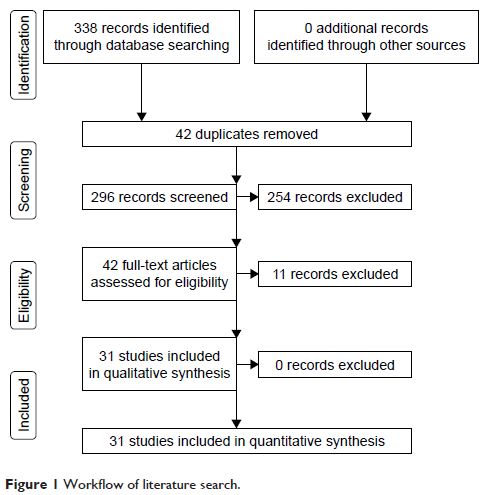108384
论文已发表
注册即可获取德孚的最新动态
IF 收录期刊
- 3.4 Breast Cancer (Dove Med Press)
- 3.2 Clin Epidemiol
- 2.6 Cancer Manag Res
- 2.9 Infect Drug Resist
- 3.7 Clin Interv Aging
- 5.1 Drug Des Dev Ther
- 3.1 Int J Chronic Obstr
- 6.6 Int J Nanomed
- 2.6 Int J Women's Health
- 2.9 Neuropsych Dis Treat
- 2.8 OncoTargets Ther
- 2.0 Patient Prefer Adher
- 2.2 Ther Clin Risk Manag
- 2.5 J Pain Res
- 3.0 Diabet Metab Synd Ob
- 3.2 Psychol Res Behav Ma
- 3.4 Nat Sci Sleep
- 1.8 Pharmgenomics Pers Med
- 2.0 Risk Manag Healthc Policy
- 4.1 J Inflamm Res
- 2.0 Int J Gen Med
- 3.4 J Hepatocell Carcinoma
- 3.0 J Asthma Allergy
- 2.2 Clin Cosmet Investig Dermatol
- 2.4 J Multidiscip Healthc

2 型糖尿病合并抑郁症患者的心理社会干预:随机对照试验的荟萃分析
Authors Xie J, Deng W
Received 5 July 2016
Accepted for publication 8 September 2017
Published 24 October 2017 Volume 2017:13 Pages 2681—2690
DOI https://doi.org/10.2147/NDT.S116465
Checked for plagiarism Yes
Review by Single-blind
Peer reviewers approved by Prof. Dr. Roumen Kirov
Peer reviewer comments 2
Editor who approved publication: Professor Wai Kwong Tang
Background: The
efficacy of psychosocial intervention has been proven in treatment of diabetic
patients with depression in some studies. This meta-analysis was conducted to
explore the efficacy as well as additional effects of this method during
diabetic management in patients with type 2 diabetes mellitus (T2DM) and
comorbid depression.
Methods: Electronic databases were searched from March 2000 to March 2017
for randomized controlled trials (RCTs) studying the effects of psychosocial
intervention on T2DM patients with depression. There was no language
limitation. Outcome measurements were symptoms of depression and anxiety, as
well as glycemic control. A random effects model was conducted.
Results: In total, 31 RCTs composed of 2,616 patients were eligible for
this analysis. The psychosocial intervention was effective for depression
symptoms with pooled standardized mean difference (SMD) of –1.50
(95% CI =–1.83, –1.18) and anxiety symptoms with SMD of –1.18 (95%
CI =–1.50, –0.85). Meanwhile, the additional effects indicated a better
improvement of glycemic control, including the fasting blood-glucose with SMD
of –0.93 (95% CI =–1.15, –0.71), 2-hour postprandial plasma glucose
with SMD of –0.84 (95% CI =–1.13, –0.56), and hemoglobin A1c with SMD of
–0.81 (95% CI =–1.10, –0.53).
Conclusion: These results demonstrate that the psychosocial intervention is
very effective in treating T2DM patients with depression.
Keywords: psychosocial intervention, type 2 diabetes mellitus, depression,
meta-analysis
